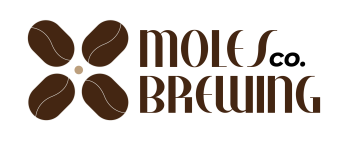The Korean aluminum industry stands as a pillar of quality and sustainability, renowned for its advanced technologies, stringent manufacturing standards, and commitment to environmental stewardship. This article delves into the key aspects that define the industry’s reputation for excellence and its contributions to sustainable development korean aluminum.
Setting the Standard for Quality
Quality is the cornerstone of the Korean aluminum industry, reflected in every stage of production from raw materials to finished products. Korean manufacturers adhere to rigorous standards and employ cutting-edge technologies to ensure consistency, reliability, and superior performance across their product lines.
1. Advanced Manufacturing Processes:
Korean aluminum producers leverage state-of-the-art manufacturing processes that integrate precision engineering with innovative materials science. This allows for the production of high-quality aluminum alloys with tailored properties such as strength, durability, and corrosion resistance. These alloys are meticulously crafted to meet the exacting demands of diverse industries including automotive, aerospace, construction, and electronics.
2. Quality Control and Assurance:
Stringent quality control measures are implemented throughout the manufacturing process to maintain product integrity and reliability. From raw material inspection to final product testing, Korean manufacturers adhere to international quality standards such as ISO 9001 to ensure that each aluminum product meets or exceeds customer expectations. This commitment to quality underpins the industry’s reputation for delivering solutions that are dependable and long-lasting.
3. Research and Development Excellence:
Continuous innovation is a driving force within the Korean aluminum industry. Research and development efforts focus on enhancing material properties, optimizing production efficiency, and exploring new applications. Collaborations with academic institutions and industry partners foster a culture of innovation that drives technological advancements and keeps Korean manufacturers at the forefront of global competition.
Commitment to Sustainability
Beyond quality, sustainability is a core principle guiding the Korean aluminum industry’s operations and future growth. Recognizing the importance of environmental responsibility and resource conservation, Korean manufacturers have implemented strategies and initiatives that promote sustainable practices across all aspects of their business.
1. Energy Efficiency and Emissions Reduction:
Korean aluminum plants prioritize energy efficiency initiatives aimed at reducing greenhouse gas emissions and minimizing environmental impact. Advanced smelting technologies and process optimizations contribute to lower energy consumption per unit of production, thereby lowering carbon footprints and enhancing operational sustainability.
2. Recycling and Circular Economy Initiatives:
The Korean aluminum industry champions recycling as a fundamental component of its sustainability strategy. Aluminum is infinitely recyclable without compromising its quality, making it a key player in the circular economy. Korean manufacturers invest in recycling facilities and collaborate with recycling partners to reclaim and reuse scrap aluminum, reducing waste and conserving valuable resources.
3. Responsible Sourcing of Raw Materials:
Sustainability in the Korean aluminum industry extends to responsible sourcing practices for raw materials. Suppliers are selected based on their adherence to ethical and environmental standards, ensuring that the aluminum supply chain remains transparent and socially responsible. This commitment to ethical sourcing minimizes environmental impacts associated with mining activities and promotes sustainable development in global supply chains.
Global Impact and Future Outlook
The global influence of the Korean aluminum industry continues to expand, driven by its reputation for quality, innovation, and sustainability. As industries worldwide prioritize environmental stewardship and seek durable, eco-friendly materials, Korean aluminum products are poised to play an increasingly vital role in shaping a sustainable future.
1. Market Leadership and Innovation:
Korean aluminum manufacturers are positioned as leaders in global markets, offering tailored solutions that address evolving customer needs and industry trends. Innovations in lightweight construction, advanced alloys, and sustainable practices reinforce their competitive edge and drive market growth.
2. Collaboration and Partnerships:
Collaboration with international stakeholders, including governments, research institutions, and industry associations, strengthens the Korean aluminum industry’s capacity to innovate and drive sustainable development initiatives on a global scale. Partnerships foster knowledge exchange, technology transfer, and collective efforts to address global challenges such as climate change and resource scarcity.
3. Vision for Sustainable Growth:
Looking ahead, the Korean aluminum industry remains committed to advancing sustainable practices and pioneering technological innovations that support economic growth while preserving environmental integrity. By embracing the principles of quality, innovation, and sustainability, Korean manufacturers continue to set benchmarks for excellence and contribute to a more sustainable future for generations to come.
Conclusion
In conclusion, the Korean aluminum industry stands as a testament to quality craftsmanship, technological innovation, and environmental stewardship. Through a steadfast commitment to excellence and sustainability, Korean manufacturers not only meet the demands of global markets but also lead the charge towards a more sustainable and resilient future. As challenges evolve and opportunities emerge, the Korean aluminum industry remains poised to drive positive change and shape the next era of sustainable development on a global scale.
